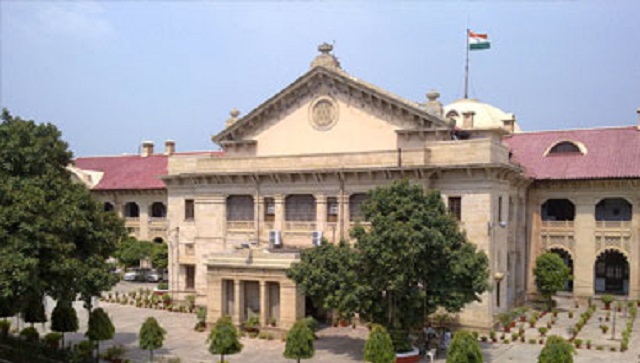The Allahabad High Court on Monday quashed the state government’s order regarding the allotment of fair price shops, stating that it would likely create a “monopoly”. On 7 July 2020, the Yogi Adityanath government had instructed officials to give preference to self-help groups in the allotment of fair price shops. Impugning the order, bench on Monday said that such an order would “worsen” the flaws of the Public Distribution System (PDS) because self-help groups have a “weak legal identity” when it comes to fixing accountability, LiveLaw reported. “The government order dated 7.7.2020 undoubtedly is violative of Article 14 of the Constitution of India, once it excludes the participation of eligible village residents and other juristic persons such as cooperative societies or gram panchayats at par with self-help group,” the single judge bench of Justice Attau Rahman Masoodi was quoted as saying.
"Let no one die of hunger is a #fundamentalduty postulated under Article 47 of Constitution that must be read as a part of the right to life under Article 21 for it is the #righttofood without which the dignified existence of human beings is inconceivable.: #AllahabadHighCourt pic.twitter.com/065XpedQhN
— Live Law (@LiveLawIndia) May 24, 2021
Holding that the right to food is a fundamental right, the court said, “‘Let no one die of hunger’ is a fundamental duty postulated under Article 47 of the Constitution of India that must be read as a part of the right to life under Article 21 for it is the right to food.” The high court’s order comes hours after the Supreme Court gave instructions to the Centre and state governments on similar lines. In a separate hearing, the Supreme Court directed the governments to provide dry ration to all migrant workers in view of the second wave of COVID-19. The country saw an exodus of migrant workers returning to their native states from cities when the first nationwide lockdown was announced in March 2020. Hundreds of people travelled from state to state on foot, lacking food and other supplies. The apex court on Monday also berated the Union and state governments for being “very slow” in the registration of unorganised workers. A bench of justices Ashok Bhushan and MR Shah also directed authorities to make community kitchens operational for migrant workers stranded throughout the country amid COVID-19 pandemic. “The process of registration is very slow. We are not happy with the efforts undertaken by the Centre and states on registration of unorganised workers,” the bench said. The top court, which said that process of registration must be expedited, directed that stranded migrant workers throughout the country should be provided dry ration under the Atma Nirbhar Bharat Scheme’ or any other scheme found suitable by the Centre and the states. The apex court passed the order on an application filed by three activists who have sought directions to the Centre and states to ensure food security, cash transfers, transport facilities and other welfare measures for migrant workers who are facing distress due to the curbs clamped in several parts of the country amid the pandemic. Advocate Prashant Bhushan, appearing for the applicants, argued on the issue of disbursement of dry ration to stranded migrant workers, providing cooked food to them and also about cash transfer benefit. The top court said it had last year passed directions regarding registration of migrant workers. In May last year, the top court had taken suo motu cognizance of problems and miseries of migrant labourers amid pandemic and had passed a slew of directions, including asking the states not to charge fare from migrant workers and provide them food for free till they board trains or buses. With inputs from PTI


)

)
)
)
)
)
)
)
)



